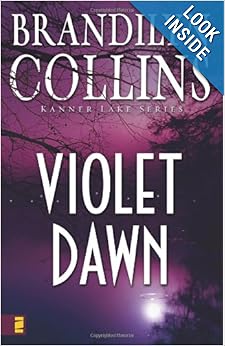One of the questions I get most often is, "How do you find time to write unless you're a full-time author?" The easy answer is that if you're willing to give up sleep, you find all kinds of time to do things. Actually, that was far more true twenty years ago than it is now. When my wife and I first married, she was amazed someone could get by on only three or four hours sleep a night.
 Now I need at least six hours sleep or I'm not good for much the next day. So how do I find time to write? You might say that I'm actually writing all the time, at least in the back of my mind. Currently, I'm working on the sequel to The Ecuadorian Deception. It's called The Ecuadorian Assassin and the scenes of the book are constantly unfolding in the back of my head.
Now I need at least six hours sleep or I'm not good for much the next day. So how do I find time to write? You might say that I'm actually writing all the time, at least in the back of my mind. Currently, I'm working on the sequel to The Ecuadorian Deception. It's called The Ecuadorian Assassin and the scenes of the book are constantly unfolding in the back of my head.Bottom line, I couldn't turn off the book if I wanted to. It's like that song that you can't get out of your head. It was the same way while I was writing The Ecuadorian Deception. The movie was rolling. I would just step into the viewing room as time allowed.
Right now, I'm working on a scene for The Ecuadorian Assassin that takes place in the La Sal Mountains of Utah, right outside Moab. At any quiet moment, my mind goes back there. It's not so much that I'm writing the scene, per say. It's more like I'm watching it, then rewinding, then watching it again. Then I change angles from which I'm viewing the scene and start it over.
Part of what I'm looking for is which point of view I want to write that chapter from. Many fiction writers follow the lead of Sir Arthur Conan Doyle and write their books in the first person. They become one of the characters in the book and simply tell the story from that perspective.
Though I love Sir Arthur Conan Doyle, I personally find that approach too limiting. As a reader, I want to know not just what people are doing, but what they are thinking. What's their hidden motivation? And if you become a character in the book, you are stuck in that person's head. Unless you get the other characters to totally spill the beans through dialogue, you have no idea what it is in their past that motivates them. (Or, if you have a Sherlock Holmes, you can have him seem to read people's minds and inform you what they're thinking.)
Regardless of how busy I am with my day job or with my next project, I always make time to learn from other author's work. If you want to be inspired, read inspiring ideas, right? In my last blog, I talked about how much I enjoy Sue Henry and Nevada Barr. They are both excellent mystery writers.
 Another author I admire is Brandilyn Collins. The one thing I don't care for in Nevada Barr's work - the excessive amount of profanity - is one of the things I appreciate about Ms. Collins. She can tell a spine-tingling story without making every other word an expletive.
Another author I admire is Brandilyn Collins. The one thing I don't care for in Nevada Barr's work - the excessive amount of profanity - is one of the things I appreciate about Ms. Collins. She can tell a spine-tingling story without making every other word an expletive.If you are looking for a fantastic book, I might recommend Violet Dawn or Dark Justice by Ms. Collins. Hopefully, I will have a lot more tips from her about writing gripping prose next month. I am attending the same writers guild meeting she will be at in February.
So if you're an aspiring writer, my advice would be to stop trying to make a plot happen. Treat it like a movie you're watching. Let the scenes unfold before your mind's eye. Then find the right words to capture what's going on. It might not work for anybody else, but for me, that's how it happens.



No comments:
Post a Comment